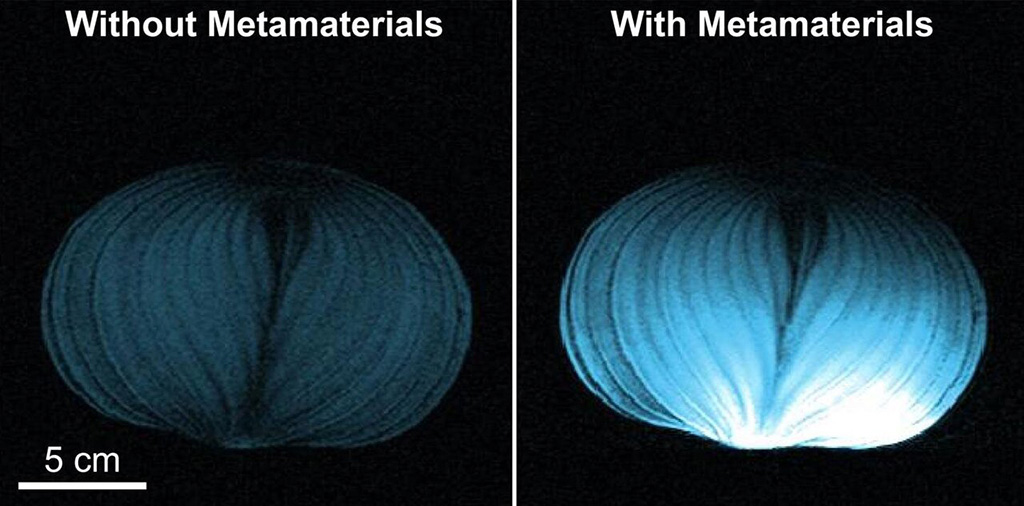Nonlinear Metamaterials Could Revolutionize MRI Scanning
By MedImaging International staff writers
Posted on 20 Nov 2019
A new intelligent metamaterial could make the entire magnetic resonance imaging (MRI) process faster, safer, and more accessible to patients.Posted on 20 Nov 2019
Developed by researchers at Boston University (BU; MA, USA), the coupled nonlinear metamaterial (NLMM) features a self‐adaptive response that amplifies the magnetic field commiserate to the resonance of the radio‐frequency (RF) excitation strength. The NLMM is suppressed in response to higher degrees of RF and recovers during a low excitation strength phase, thus increasing the signal-to-noise ratio (SNR) 10-fold, greatly enhancing image quality and reducing scan time, and thus opening up a new way to obtain crisper MRI images at very low cost.

Image: Intelligent metamaterials Enhance MRI images (Photo courtesy of BU)
The nonlinear response of the NLMM behavior is passive, selectively boosting low-energy RF emissions from the patient's body in normal mode, and turning itself off during the millisecond bursts of high-energy RF transmission from the MRI machine. The off-time, which last just a few milliseconds, allows intelligent NLMM to enhance the energy sent back to the MRI. It also diminishes the patient's overall exposure to radio wave radiation and mitigates potential safety concerns. The study was published on October 30, 2019, in Advanced Materials.
“The intelligent metamaterial consists of an array of metallic helical resonators closely packed with a passive sensor,” said lead author professor of radiology Xiaoguang Zhao, MD. “When the high-energy radio waves are coming in, the metamaterial detects the high energy level and turns off the resonance automatically. With low-energy radio excitation, the metamaterial turns on the resonance and enhances the magnetic component of the radio wave. We can now build smart materials that can interact with radio waves intelligently, enhancing the wanted signal while letting the unwanted signal go.”
MRI represents a powerful diagnostic tool in the armamentarium of modern healthcare that is widely applied across a spectrum of diseases, from stroke to cancer imaging and beyond. It can be used to generate images from a range of tissue properties without ionizing radiation, resulting in an inherently high degree of tissue contrast. Chief among the performance metrics of MRI systems is SNR, which may be leveraged to boost overall acquisition performance, from image resolution to the efficiency of image acquisition, and has been demonstrated to improve anatomic delineation and detection of pathology.
Related Links:
Boston University













